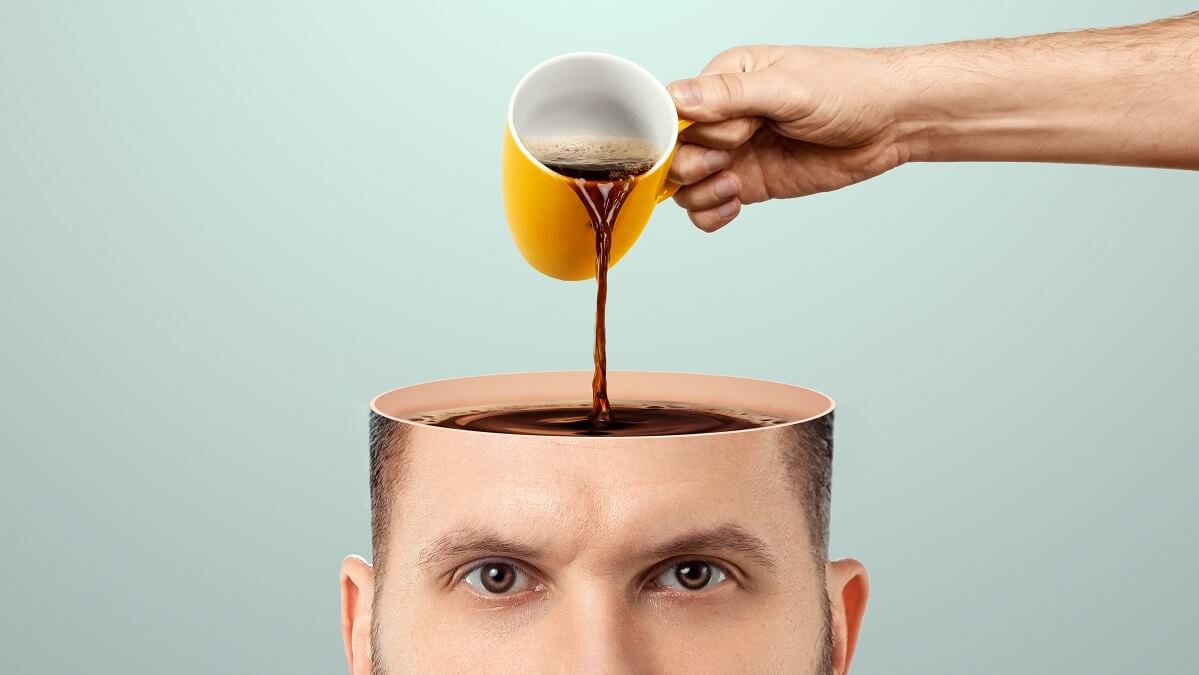Does coffee really give you energy or could your daily cup be just a placebo when it comes to boosting alertness and performance? Recent research suggests that might be the case.
Coffee is a staple drink for many people, especially in the morning. In fact, around 75 per cent of the Australian population aged 20 and over drink coffee, and approximately 49 per cent of those people consume it daily.
As we all know, coffee contains caffeine, which is known to activate dopamine pathways in the brain that boost memory. However, while the neurochemical effects of coffee on the brain are well-documented, its psychological effects are less understood.
Previous research has shown that coffee may have different effects on cognitive performance in occasional drinkers versus habitual drinkers. Habitual drinkers tend to develop a tolerance to the effects of coffee, which means it has less of an impact on their alertness and performance.
But is it the caffeine in coffee that provides the mental boost or a placebo effect from the taste of drinking coffee? A group of researchers set out to determine this in a study published in the journal Frontiers in Behavioral Neuroscience.
To do this, the researchers examined a group of 47 people who drank at least one cup of coffee per day, with an average age of 30.
All participants were asked to abstain from consuming caffeinated drinks or food for at least three hours before participating in the study.
Once in the lab, the participants underwent two fMRI scans – one before and one 30 minutes after taking a caffeine supplement or drinking a cup of coffee.
The researchers found that both coffee and caffeine caused changes in brain activity, specifically decreasing the connectivity of what’s known as the ‘default mode network’ (DMN).
The DMN is a network of interacting regions of the brain that is active when a person is not focused on the outside world and is in more of a resting state. This decrease suggests consuming either caffeine or coffee helps the brain transition from resting to working states.
However, the study also found that coffee drinkers experience other modes of brain activity that are not seen in those who consume caffeine only.
The results also showed coffee consumption, but not caffeine consumption, led to increased activity in executive control and networks associated with visual processing and higher-level cognitive function.
The differing effects may possibly be attributable to the sensory experience of drinking a cup of coffee. Culturally, drinking a cup of coffee in the morning is associated with waking up and preparing for the day ahead. This collective experience and social norm may contribute to the perceived benefits of coffee.
Additionally, coffee contains compounds such as terpenes and polyphenols that interact with brain receptors to increase energy, mood, and motivation. These compounds have also been associated with anti-inflammatory and antioxidant properties, which may contribute to a lower risk of depression.
While coffee and caffeine both have effects on brain activity, the placebo effect, cultural associations, and compounds present in coffee may all also play a role in its perceived effects on alertness and performance.
How often do you drink coffee? Would you say it makes you more alert? Let us know in the comments section below.
Also read: Delaying morning coffee 90 minutes could improve your sleep

